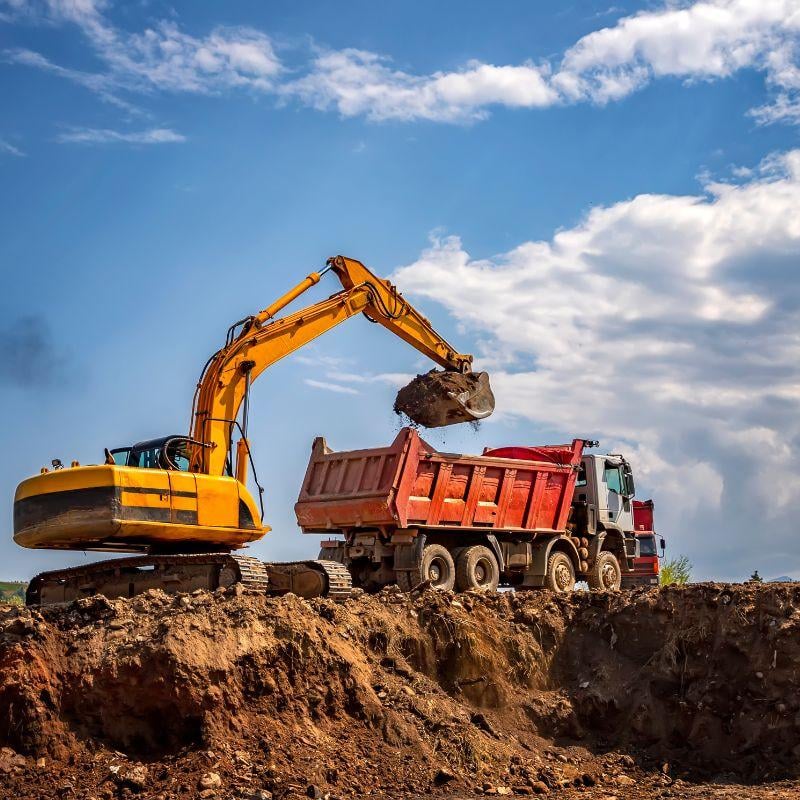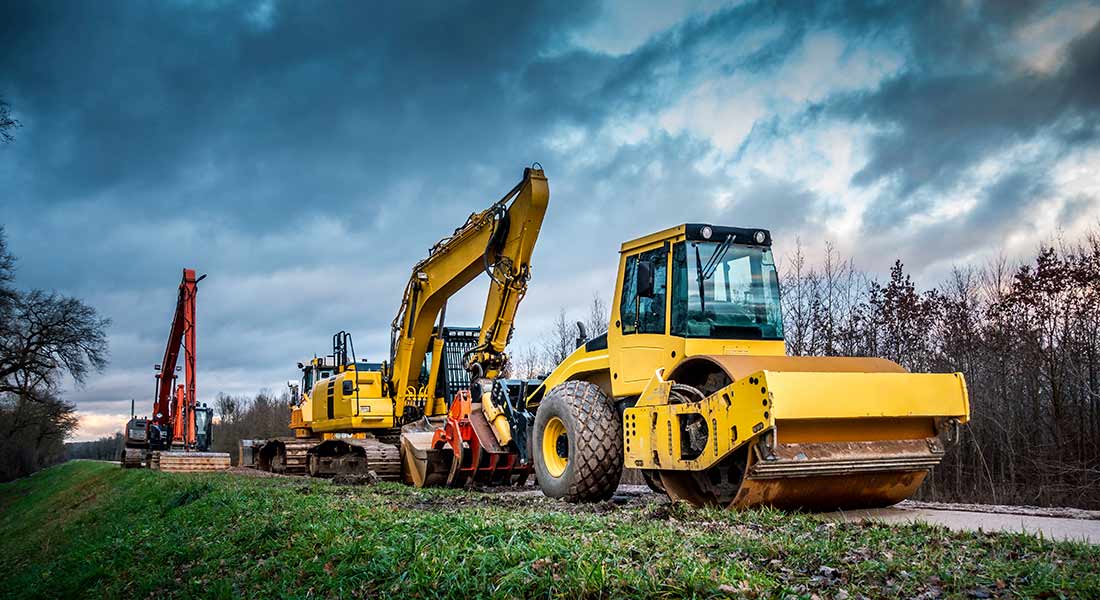Scissor Lift Rental in Tuscaloosa AL: Safe and Effective Lifting Solutions
Scissor Lift Rental in Tuscaloosa AL: Safe and Effective Lifting Solutions
Blog Article
Exploring the Financial Benefits of Leasing Construction Devices Compared to Possessing It Long-Term
The choice in between renting out and possessing building devices is pivotal for monetary management in the industry. Renting deals prompt cost financial savings and operational flexibility, permitting business to assign sources extra effectively. On the other hand, ownership features substantial lasting monetary commitments, consisting of maintenance and devaluation. As professionals consider these choices, the effect on cash circulation, job timelines, and technology access comes to be significantly significant. Recognizing these subtleties is crucial, particularly when considering how they line up with certain task requirements and economic strategies. What aspects should be focused on to ensure optimal decision-making in this facility landscape?

Price Contrast: Renting Vs. Having
When evaluating the economic implications of possessing versus renting construction devices, a detailed cost contrast is crucial for making informed decisions. The choice between possessing and renting can dramatically affect a firm's bottom line, and recognizing the linked expenses is essential.
Leasing building and construction devices usually includes reduced upfront expenses, allowing services to designate resources to various other functional needs. Rental expenses can gather over time, possibly exceeding the expenditure of possession if tools is required for an extended duration.
Conversely, having building and construction equipment calls for a significant initial financial investment, together with continuous costs such as insurance policy, devaluation, and funding. While possession can lead to lasting cost savings, it additionally binds capital and may not supply the exact same level of adaptability as leasing. Additionally, owning tools necessitates a commitment to its use, which might not constantly straighten with job needs.
Ultimately, the decision to lease or possess must be based on a detailed evaluation of certain job needs, financial capacity, and lasting strategic goals.
:max_bytes(150000):strip_icc()/Balance_Must_Have_Earth_Moving_Construction_Heavy_Equipment_844586-c5b6ac9e5c074c11ad41e9acaea8f099.png)
Upkeep Responsibilities and costs
The option between owning and leasing building equipment not just entails financial factors to consider however likewise incorporates ongoing upkeep expenditures and obligations. Possessing equipment calls for a significant dedication to its upkeep, which includes routine evaluations, repair services, and prospective upgrades. These responsibilities can promptly accumulate, resulting in unanticipated expenses that can stress a budget.
On the other hand, when leasing devices, upkeep is usually the obligation of the rental company. This arrangement allows professionals to prevent the financial problem connected with wear and tear, in addition to the logistical challenges of scheduling fixings. Rental arrangements typically include arrangements for maintenance, suggesting that contractors can focus on finishing projects instead than bothering with tools condition.
Furthermore, the varied series of devices readily available for rent allows business to choose the newest versions with advanced innovation, which can improve performance and performance - scissor lift rental in Tuscaloosa Al. By selecting leasings, services can prevent the long-lasting obligation of tools devaluation and the connected upkeep headaches. Ultimately, examining upkeep expenditures and obligations is crucial for making an informed decision about whether to lease or possess building devices, dramatically affecting overall project expenses and operational effectiveness

Devaluation Influence On Ownership

A significant element to take into consideration in the decision to own building and construction equipment is the influence of devaluation on total ownership prices. Depreciation stands for the decline learn the facts here now in worth of the devices in time, affected by factors such as use, damage, and innovations in technology. As tools ages, its market price diminishes, which can significantly influence the owner's financial placement when it comes time to offer or trade the tools.
For construction companies, this depreciation can translate to substantial losses if the equipment is not used to its greatest potential or if it lapses. Proprietors need to make up depreciation in their economic estimates, which can cause higher overall costs contrasted to renting. Furthermore, the tax obligation implications of depreciation can be complex; while it might provide some tax obligation advantages, these are commonly countered by the truth of reduced resale value.
Eventually, the concern of depreciation emphasizes the significance of understanding the long-term financial dedication associated with possessing building and construction equipment. Business need to carefully review exactly how commonly they will certainly use the equipment and the potential monetary impact of depreciation to make an enlightened decision about ownership versus renting out.
Financial Flexibility of Renting
Renting out building and construction equipment supplies substantial monetary flexibility, allowing firms to designate resources a lot more efficiently. This versatility is especially crucial in a market identified by varying project needs and differing workloads. By choosing to lease, businesses can stay clear of the significant funding outlay required for acquiring tools, maintaining capital for other functional needs.
In addition, leasing equipment enables companies to tailor why not check here their devices choices to certain project demands without the lasting commitment associated with possession. This indicates that services can conveniently scale their tools supply up or down based upon existing and awaited job demands. As a result, this flexibility decreases the threat of over-investment in machinery that might end up being underutilized or outdated gradually.
An additional financial advantage of renting out is the capacity for tax advantages. great post to read Rental repayments are usually considered operating costs, enabling prompt tax obligation reductions, unlike depreciation on owned and operated tools, which is spread out over several years. scissor lift rental in Tuscaloosa Al. This immediate expense recognition can better boost a firm's money position
Long-Term Task Factors To Consider
When evaluating the long-lasting requirements of a construction service, the choice between renting out and owning equipment becomes extra intricate. For jobs with prolonged timelines, acquiring tools might appear advantageous due to the possibility for reduced overall prices.
Additionally, technical improvements posture a considerable factor to consider. The building sector is advancing quickly, with new devices offering improved effectiveness and safety and security functions. Renting out allows firms to access the current modern technology without devoting to the high upfront costs connected with purchasing. This versatility is especially helpful for organizations that handle diverse tasks requiring different types of devices.
Moreover, monetary security plays a crucial duty. Having equipment typically involves significant capital investment and depreciation issues, while renting enables more foreseeable budgeting and capital. Inevitably, the option in between renting and owning needs to be aligned with the calculated purposes of the building business, thinking about both expected and existing job demands.
Final Thought
In conclusion, renting construction tools uses substantial monetary benefits over long-term possession. Ultimately, the decision to rent rather than own aligns with the vibrant nature of building and construction projects, permitting for adaptability and access to the most current devices without the financial burdens connected with possession.
As devices ages, its market value lessens, which can substantially impact the owner's monetary setting when it comes time to sell or trade the equipment.
Leasing construction tools provides significant financial versatility, enabling companies to assign sources a lot more successfully.In addition, leasing equipment makes it possible for business to customize their equipment choices to specific project requirements without the long-lasting commitment linked with possession.In verdict, renting out building equipment supplies significant monetary benefits over lasting ownership. Inevitably, the choice to rent instead than own aligns with the vibrant nature of building and construction jobs, allowing for adaptability and access to the most recent devices without the financial problems linked with possession.
Report this page